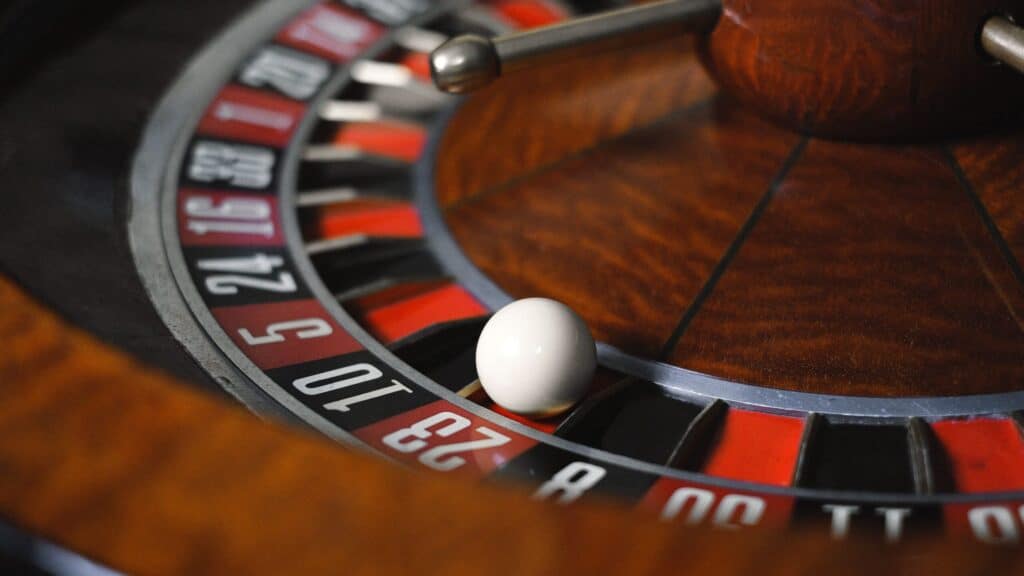When it comes to casino games, few are as iconic and easily recognizable as roulette. The spinning wheel, the ball bouncing around the numbers, and the familiar red and black pockets form the foundation of one of the most exciting and popular casino games worldwide. One of the most common betting options in roulette is betting on red or black, where players wager on the outcome of the ball landing on either a red or black number. But what drives players to place these bets? What psychological factors influence their choices? In this article, we’ll explore the psychology of betting on red or black, examining the emotional, cognitive, and strategic influences that shape players’ decisions and behavior in this classic casino game.
Understanding Roulette and the Red or Black Bet
Before delving into the psychology behind betting on red or black, it's important to first understand how roulette works. Roulette is a game of chance where players place bets on where a ball will land on a spinning wheel. The wheel consists of 37 pockets (in European roulette) or 38 pockets (in American roulette), numbered from 0 to 36 (with the 0 being green). The pockets are alternately colored red and black, except for the green 0 (or 00 in American roulette).
In a typical roulette game, players have a variety of betting options, from betting on specific numbers to larger groupings of numbers. One of the simplest and most popular bets is the red or black bet, where players wager that the ball will land on either a red or a black number. This bet covers 18 numbers on the wheel and pays even money (1:1). The odds of winning are 18 out of 37 (in European roulette) or 18 out of 38 (in American roulette), giving players a nearly 50% chance of winning, with the exception of the green zero(s), which lower the odds slightly.
The Psychology Behind Red or Black Betting
Betting on red or black may seem like a straightforward and simple choice, but there are a variety of psychological factors at play when players make this decision. These factors can include emotional impulses, cognitive biases, and social influences, all of which can shape a player’s approach to roulette.
1. The Desire for Simplicity
One of the most prominent psychological factors that influence the decision to bet on red or black is the human tendency to seek simplicity. Roulette offers a wide variety of complex betting options, from inside bets on specific numbers to more intricate groupings of numbers. However, for many players, the idea of choosing a bet with nearly 50% odds of winning is incredibly appealing. Betting on red or black is simple, easy to understand, and doesn't require in-depth knowledge of the game or complex strategies.
This simplicity is especially attractive for beginner players, who may not yet be comfortable with more complicated bets. By betting on red or black, players are reducing the cognitive load associated with decision-making and embracing a straightforward approach to the game.
2. The Illusion of Control and the Gambler’s Fallacy
Another psychological factor that comes into play when betting on red or black is the illusion of control. Many players believe that by choosing a specific color, they can influence the outcome of the game. This is a classic example of the illusion of control, a cognitive bias where individuals overestimate their ability to control random events. In roulette, the outcome is entirely based on chance, and players have no control over where the ball will land. However, this belief in control can still impact players’ betting behavior.
Closely related to this illusion of control is the gambler’s fallacy, which occurs when players believe that the outcome of a random event is influenced by previous outcomes. For example, a player may see that red has won several times in a row and believe that black is "due" to hit. This belief that past outcomes affect future results is a fallacy because, in reality, each spin of the roulette wheel is independent of the previous spin. The chances of red or black occurring on any given spin remain the same, regardless of previous outcomes. Nevertheless, the gambler’s fallacy can often lead players to bet on a specific color based on emotional impulses, rather than on logical reasoning.
3. Emotional Decisions and the Influence of Win/Loss Streaks
Emotions play a significant role in gambling behavior, and this is especially true when it comes to betting on red or black. Players who are on a winning streak may feel a sense of excitement, confidence, and euphoria, which can lead them to continue betting on red or black in the hopes that their luck will continue. This emotional state can lead to impulsive betting, where players increase their wagers or place bets on a whim without carefully considering the odds.
Conversely, players who are experiencing a losing streak may feel frustration, anxiety, or the desire to "chase" their losses. This can lead to poor decision-making and riskier betting behavior, such as increasing the size of bets in an attempt to recover previous losses. This emotional decision-making can cloud judgment and result in less strategic betting.
Fun Fact: Some casinos have implemented "cooling-off" periods for players who have experienced significant losses, allowing them to take a break and reflect on their emotions before continuing to bet.
4. The Appeal of Even Money Bets
Betting on red or black is often referred to as an "even money" bet because the payout is 1:1, meaning that players will win the same amount they bet. This type of bet is particularly appealing because it offers the potential for frequent small wins, creating the illusion of progress and success. Even money bets are psychologically attractive because they provide regular reinforcement, which can encourage players to continue betting and engaging with the game.
The frequency of wins associated with even money bets can create a sense of excitement and build momentum, which in turn can lead players to feel more confident and in control. However, it’s important to note that even money bets still come with the inherent risk of losing, especially when considering the presence of the green zero (or double zero) in roulette, which skews the odds and reduces the player’s overall probability of winning.
5. The Role of Risk Tolerance and Player Behavior
Different players have varying levels of risk tolerance, which significantly impacts their betting behavior. Players with a high tolerance for risk may enjoy betting on red or black because it offers the chance for frequent wins, but with a certain level of uncertainty. These players may find the excitement of placing bets with nearly even odds appealing, as they are willing to accept the possibility of losing in exchange for the potential of small, frequent rewards.
On the other hand, players with a lower tolerance for risk may find betting on red or black less appealing, as they are more concerned with minimizing their losses. These players may prefer to make smaller bets or opt for other betting strategies that limit their exposure to risk.
Statistical Analysis of Red or Black Bets
While the psychology behind betting on red or black is fascinating, it’s important to understand the statistical realities of the bet. In European roulette, there are 18 red numbers, 18 black numbers, and one green 0, which results in a house edge of approximately 2.7%. In American roulette, there are 18 red numbers, 18 black numbers, and two green pockets (0 and 00), resulting in a higher house edge of approximately 5.26%.
The house edge is the percentage of each bet that the casino expects to keep over the long term, and it represents the disadvantage that players face when placing a bet. For red or black, the house edge is a key factor to consider, especially for players who are making repeated bets and looking for a long-term strategy. While the odds of winning on red or black are close to 50%, the presence of the green zero(s) means that the true probability of winning is slightly lower than 50%, and over time, players will lose more often than they win due to the house edge.
Calculation: In European roulette, the probability of winning a red or black bet is 18/37 (48.65%). The probability of losing is 19/37 (51.35%). The house edge is calculated based on the difference between the player’s expected win and the actual payout (1:1), which is why the house maintains an advantage over time.
Conclusion
The psychology of betting on red or black in roulette is a fascinating blend of emotional impulses, cognitive biases, and strategic decision-making. Players are often drawn to the simplicity, potential for frequent wins, and even money payouts associated with these bets, but it’s important to be aware of the psychological factors that influence their decisions. From the gambler’s fallacy to the illusion of control, these biases can shape how players approach the game and influence their behavior at the table. By understanding the psychological motivations behind red or black betting, players can make more informed decisions, manage their emotions, and approach the game with a clearer strategy. Ultimately, while roulette is a game of chance, the psychology behind each bet adds another layer of complexity to the experience.



